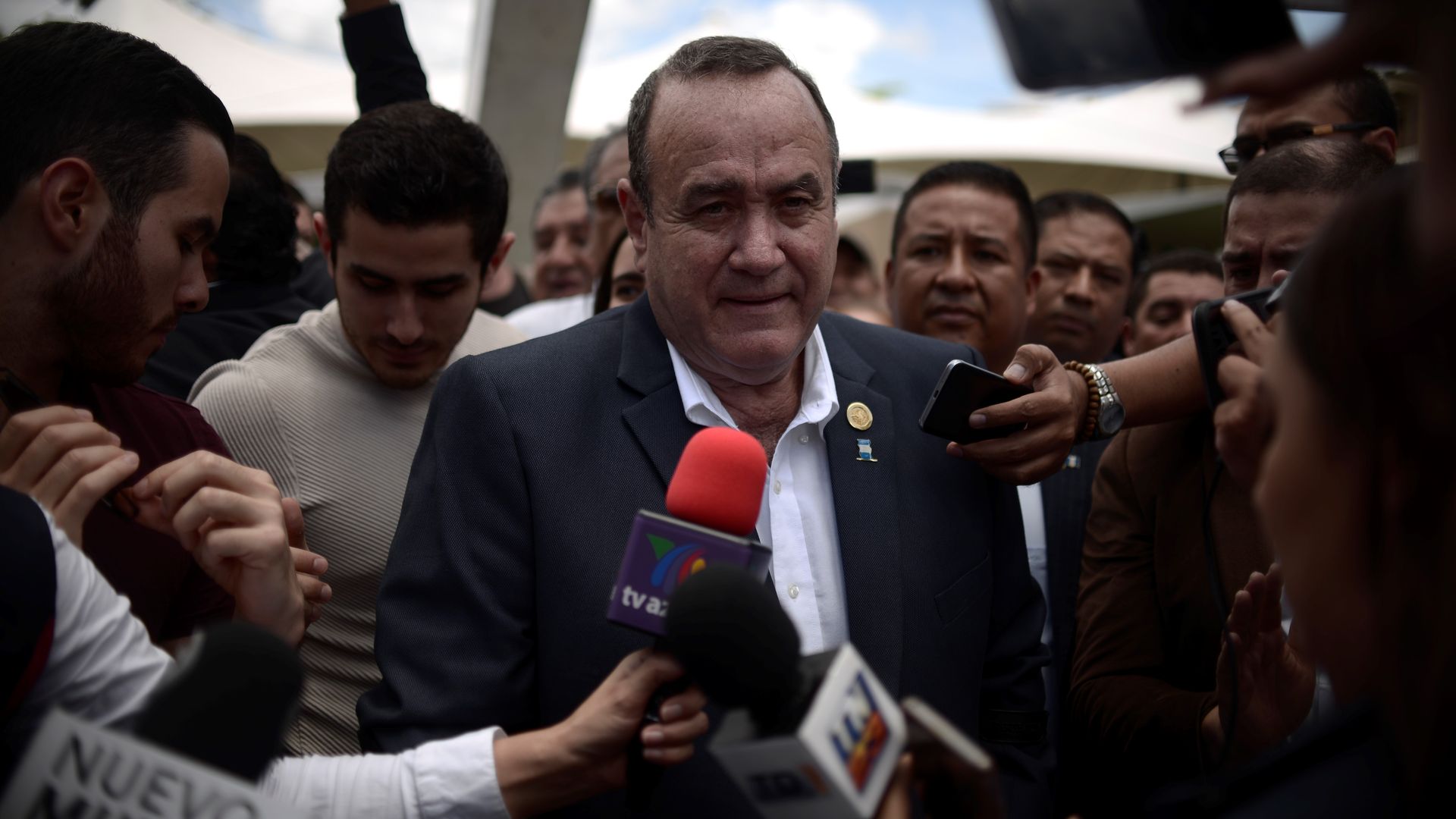Guatemalan election could upend Trump’s migration deal
Add Axios as your preferred source to
see more of our stories on Google.

President-elect Alejandro Giammattei speaking to press in Guatemala City. Photo: Fabricio Alonzo/Anadolu Agency via Getty Images
The surprise victory of Alejandro Giammattei in Guatemala's runoff presidential election on Sunday could throw a central plank of Trump’s migration strategy into doubt.
The big picture: Giammattei campaigned on improving security, boosting economic growth, promoting socially conservative values and fighting corruption, though he opposes the renewal of a UN–backed anti-corruption commission. He said he will seek to amend the immigration deal that outgoing President Jimmy Morales signed with President Trump, which he has called “not right for the country.”
Driving the news: Giammattei, a former prisons director and candidate for the right-wing Let’s Go party, scored a lopsided 58% of the vote, routing former first lady Sandra Torres of the National Unity of Hope party in an election marked by low turnout and fatigue.
- It was Giammattei's 4th bid for the presidency. He benefited from widespread urban distrust of Torres and took a tough-on-crime stance to appeal voters concerned about the country's pervasive violence.
- For many Guatemalans, however, neither candidate offered a compelling plan to counter corruption, which contributed to weak voter enthusiasm once stronger anti-corruption advocates were eliminated from the race.
Background: After Trump threatened tariffs and remittance taxes, Morales signed a "safe third country" agreement that would prevent migrants from El Salvador and Honduras from applying for asylum in the U.S. if they do not first apply in Guatemala.
- Guatemala's Constitutional Court has cast doubt on the widely unpopular deal, arguing that it requires congressional approval. Moreover, the country has few resources or legal protections for migrants.
What to watch: Once inaugurated in January 2020, Giammattei will have to address the migration wave that has sent more than 250,000 Guatemalans to the U.S.–Mexico border since October 2018.
- Despite Guatemala’s limited capacity to host asylum-seekers, Giammattei will have few options to reform the deal. He has noted that the U.S. judicial system will have to review it and indicated that he would consult with the Guatemalan congress.
- Meanwhile, the Trump administration is seeking arrangements with El Salvador and Honduras, which are likely to face similar pressure tactics.
The bottom line: As much as Giammattei’s pro-growth, law-and-order campaign may echo the Trump playbook, the two leaders seem likely to clash as migration pressures build in Guatemala.
Daniel P. Erikson is managing director at Blue Star Strategies and a senior fellow at the Penn Biden Center for Diplomacy and Global Engagement.
